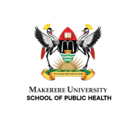The National Development Plan (NDP) 1 and National Environment Management Authority (NEMA) have recommended that if the country is to stimulate economic growth based on oil and gas, agriculture, mineral development, renewable energies and other industries, there is need for development of the required infrastructural and technical capacity to effectively manage the environmental and occupational health hazards associated with these industries (NSOER, 2014). The SDGs, and the second National Health Policy of Uganda, 2010 - 2020, emphasize “A healthy and productive population that contributes to socio-economic growth and national development.” Specifically, SDG 8 target 8.8 highlights the importance of ‘protecting labour rights and promoting safe and secure working environments for all workers, including migrant workers, in particular women migrants, and those in precarious employment’ These national and global goals agree with the achievement of Uganda’s Vision 2040 of ‘a healthy and productive population that contributes to socioeconomic growth and national development’. To attain these, occupational health is critical in ensuring the health of workers and increasing productivity and thus fostering economic growth. Currently, this is the only graduate training in environmental and occupational health in Uganda, and the other only two Universities (Muhimbili University in Tanzania and Egerton University in Kenya) are offering such training in the East and Central African region. Majority of the BEHs graduates with interests in furthering their knowledge and skills in environmental and occupational health in the region, previously got stranded and opted for other programmes within the existing Universities and institutions or travel abroad for training which is very expensive. Specialization in environmental and occupational health will produce graduates with knowledge and skills to address the above challenges in Uganda and beyond.

